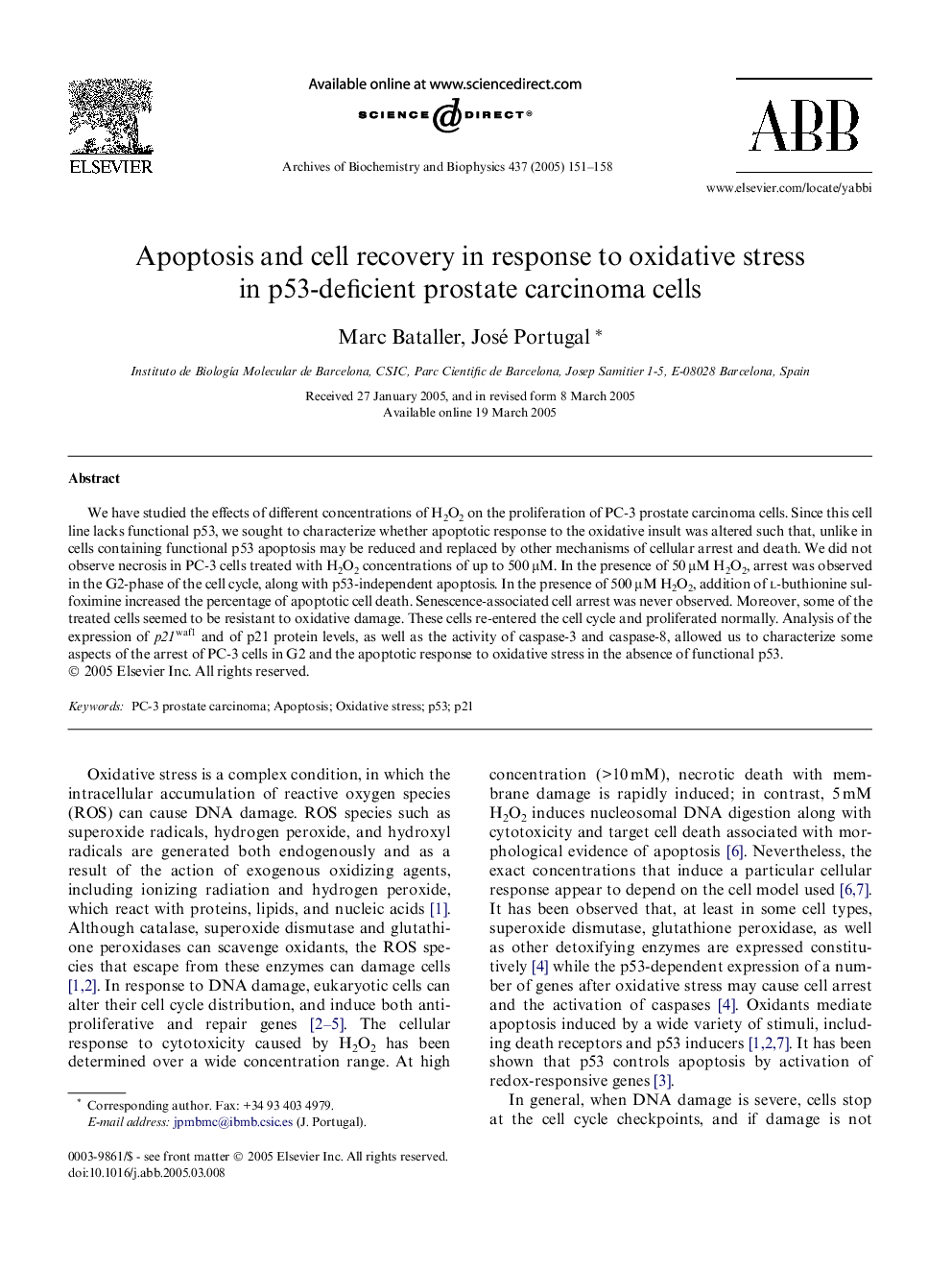| Article ID | Journal | Published Year | Pages | File Type |
|---|---|---|---|---|
| 9882216 | Archives of Biochemistry and Biophysics | 2005 | 8 Pages |
Abstract
We have studied the effects of different concentrations of H2O2 on the proliferation of PC-3 prostate carcinoma cells. Since this cell line lacks functional p53, we sought to characterize whether apoptotic response to the oxidative insult was altered such that, unlike in cells containing functional p53 apoptosis may be reduced and replaced by other mechanisms of cellular arrest and death. We did not observe necrosis in PC-3 cells treated with H2O2 concentrations of up to 500 μM. In the presence of 50 μM H2O2, arrest was observed in the G2-phase of the cell cycle, along with p53-independent apoptosis. In the presence of 500 μM H2O2, addition of l-buthionine sulfoximine increased the percentage of apoptotic cell death. Senescence-associated cell arrest was never observed. Moreover, some of the treated cells seemed to be resistant to oxidative damage. These cells re-entered the cell cycle and proliferated normally. Analysis of the expression of p21waf1 and of p21 protein levels, as well as the activity of caspase-3 and caspase-8, allowed us to characterize some aspects of the arrest of PC-3 cells in G2 and the apoptotic response to oxidative stress in the absence of functional p53.
Keywords
Related Topics
Life Sciences
Biochemistry, Genetics and Molecular Biology
Biochemistry
Authors
Marc Bataller, José Portugal,
